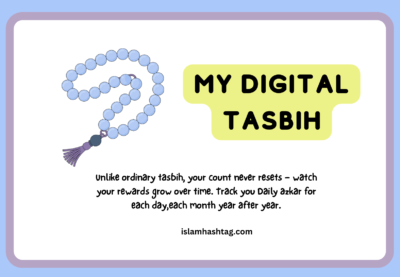What is murabaha in banking?
Murabaha in other words is Cost-Plus Financing.This is a contract sale between the bank and its client for the sale of goods at a price which includes a profit margin agreed by both parties. As a financing technique, it involves the purchase of goods by the bank as requested by its client. The goods are sold to the client with a mark-up. Repayment, usually in instalments is specified in the contract.
One of the requirements for using this technique is that the details provided must be accurate and honest.In simple terms Murabaha is a contract between a buyer and a seller, where the seller purchases an item on behalf of the buyer and then sells it to them at a marked-up price. The markup is agreed upon by both parties at the time of the sale and is usually based on the cost of the item and the profit margin that the seller wishes to make.
The key feature of Murabaha is that the seller takes ownership of the item before selling it to the buyer. This means that the seller bears the risk of any damage or loss that may occur to the item during the period between purchase and sale. Once the buyer has purchased the item, they can either pay for it immediately or agree to pay for it in installments over a set period of time.
Example of Murabaha banking
Murabaha is often used in Islamic finance as a way to provide financing for large purchases such as homes, cars, and other expensive items. It is also used in trade finance, where it can be used to finance the purchase of goods that will be sold on to third parties.
For example:
The financier (suppose yourself ) will purchase the goods from the supplier.The financier may then personally go and take possession of the goods or appoint a third party (Wakeel) to take possession of the goods on his behalf. For purposes of practicality, the financier may even appoint the delivery company (who deliver the goods to the grocer) as his Wakeel. Thereafter, the financier will effect a sale between himself and the grocer on a cost plus profit basis(Murabaha). The above procedure is called Murabaha Financing.
Murabaha meaning
Murabaha is derived from the Arabic root word (rabiha), which means to grow in business and succeed. Making profit is the measurement of that success (see Ibn Mandhoor, 2003). Therefore, the generic term Murabaha is often linked to the declaration of profit as a way of measuring the success of a sale transaction and the return on the exchange of money with commodity.
In the classical Arabic dictionaries, Murabaha is often used to describe the sale transaction, where the profit amount is known and declared, for example, when a trader says: I will sell you this commodity with a profit of one dirham for every ten dirhams ( Ibn Mandhoor, 2003)
Term Murabaha first used:
Murabaha sales are mentioned in the first known book of Islamic jurisprudence, the Al-Muatta’a of Imam Malik ibn Anas (d. 795 CE). In Al-Muatta’a, under the book of sales, there is a chapter on the Murabaha sales, in which the Imam discusses matters related to selling of textile with a declared profit and a known cost, and he elaborated on certain questions raised on this kind of sale, where the profit amount is known and agreed by both parties.
Benefits of Murabaha
One of the main benefits of Murabaha is that it provides a flexible payment schedule, which allows the buyer to pay for the goods or services over a period of time. This makes it easier for customers to purchase expensive items without having to pay the full amount upfront.
Another advantage of Murabaha is that it is a transparent financing method. The profit margin is agreed upon at the outset of the transaction, and the buyer knows exactly how much they will be paying for the goods or services. This transparency helps to build trust between the bank and the customer.
Use of Murabaha
The murabaha form of financing is typically used in place of loans in diverse sectors. For example, consumers use murabaha when purchasing household appliances, cars, or real estate. Businesses use this type of financing when purchasing machinery, equipment, or raw materials. Murabaha is also commonly used for a short-term trade, such as issuing letters of credit for importers.
In addition to being used by Islamic banks, murabahah contracts have been used by Islamic investment funds (such as SHUAA Capital of Saudi Arabia and Al Bilad Investment Company), and sukuk (also called Islamic bonds)(an example being a 2005 sukuk issued by Arcapita Bank sukuk in 2005).
How is Murabaha sale different than other sale
The distinguishing feature of Murabaha from ordinary sale is that the seller discloses the cost to the buyer and a known profit is added.
In principle, a Murabaha transaction falls under the category of a regular buy-and-sale transaction. Profit in Arabic is translated to Ribh. As such, it has been termed “Murabaha” as the seller discloses the amount he has paid to acquire the commodity as well as his mark-up (ribh).
Being a regular transaction, the condition of validity rests on two factors, ownership, and possession. If both are found, then as a valid sale, the profit will be halal. The time for ownership is not limited to a specific time frame. Rather, a moment of time is sufficient.
Basic rules for Murabaha financing:
- Asset to be sold must exist.
- Sale price should be determined.
- Sale must be unconditional.
- Assets to be sold: a) Should not be used for un-Islamic purpose. b) Should be in ownership of the seller at the time of sale; physical or constructive.
How is profit made in Murabaha?
Instead of lending out money, the capital provider purchases the desired commodity (for which the loan would have been taken out) from a third party and resells it at a predetermined higher price to the capital user. By paying this higher price over instalments, the capital user has effectively obtained credit without paying interest.
Here is step by step model of Murabaha finance
The client approaches bank and expresses his intention for murabaha agreement.
- The bank performs a preliminary credit assessment
- The bank appoints the customer as its agent to negotiate the price and terms for the purchase agreement on its behalf.
- On the closing date, the bank purchases the property and assumes all risks associated with the property.
- The bank sells the property to the client at an agreed sale price
- The property is mortgaged as security (rahn) against the payment of the purchase price.
- The customer makes monthly payments over the agreed term.
- Once all payments have been made in full, the mortgage security is discharged.
The process of Murabaha starts with the customer approaching the bank with a request for financing. The bank then evaluates the customer’s creditworthiness and approves the request if they meet the criteria. Once approved, the bank and the customer agree on the terms of the financing, including the purchase price, profit margin, and payment schedule.
The bank then purchases the asset from a third party vendor or supplier and takes ownership of it. The bank then sells the asset to the customer at a marked-up price, which is determined based on the agreed profit margin. The customer pays back the amount in installments over an agreed period, which includes the cost of the asset and the profit margin.
The key feature of Murabaha is that the bank takes ownership of the asset before selling it to the customer. This means that the bank bears the risk of any damage or loss to the asset until it is sold to the customer. Additionally, the profit margin is agreed upon upfront, which provides transparency and predictability for both the bank and the customer.
Read Books on islamic banking and Finance
Types of Murabaha
The three main types of Murabaha are:
- Cost-Plus Murabaha: This type of Murabaha involves the purchase of goods by the financier at a cost plus an agreed-upon profit margin. The financier then sells the goods to the customer at a higher price, which includes the cost and profit margin. The customer pays for the goods in installments over a specified period.
- Deferred Payment Murabaha: In this type of Murabaha, the financier purchases the goods on behalf of the customer and sells them to the customer at a marked-up price. The customer pays for the goods in installments over a specified period, with the total amount including the cost and profit margin.
- Parallel Murabaha: This type of Murabaha involves two separate transactions. The first transaction involves the financier purchasing the goods from a supplier and taking ownership of them. The second transaction involves the financier selling the goods to the customer at a marked-up price. The customer pays for the goods in installments over a specified period, with the total amount including the cost and profit margin.
Murabaha for Trade Finance
In this type of Murabaha, the bank acts as a middleman between the buyer and seller. The buyer approaches the bank with a request to purchase goods from a particular seller. The bank then purchases the goods from the seller at a price agreed upon by both parties. The bank then sells the goods to the buyer at a higher price, which includes a profit margin. The buyer pays the bank back in installments over an agreed-upon period.
This type of Murabaha is beneficial for both the buyer and seller. The buyer gets access to financing without having to pay interest, which is prohibited in Islamic finance. The seller benefits from the sale of their goods and receives payment upfront from the bank, reducing their risk of non-payment.
Murabaha for trade finance is commonly used in industries such as agriculture, manufacturing, and construction. It allows businesses to purchase raw materials, equipment, and other necessary items without having to pay for them upfront. This can help businesses manage their cash flow and invest in growth opportunities.
Murabaha for Real Estate Financing
Murabaha can also be used for real estate financing. In this case, the bank purchases the property from the seller and then sells it to the buyer at a higher price, which includes a profit margin. The buyer then pays back the bank in installments over a period of time.
This type of Murabaha financing is particularly useful for those who want to purchase a property but do not have the necessary funds upfront. It allows them to acquire the property without having to take out a conventional loan with interest, which is prohibited in Islamic finance.
The process for obtaining Murabaha financing for real estate is similar to that of other types of financing. The buyer must provide the necessary documentation, such as proof of income and employment, as well as information about the property they wish to purchase. The bank will then assess the buyer’s eligibility and determine the profit margin for the sale.
Overall, Murabaha for real estate financing provides a viable alternative to conventional loans for those who wish to adhere to Islamic finance principles. It allows individuals to purchase property without incurring interest, making it a popular choice among Muslims around the world.
Murabaha for Personal Financing
Murabaha is a popular Islamic financing technique that has been used for centuries. It is a type of sale where the seller discloses the cost of the item to the buyer and then adds a profit margin on top of it. This profit margin is agreed upon by both parties before the sale takes place. Murabaha is commonly used in trade finance and real estate financing, but it can also be used for personal financing.
Murabaha for personal financing is a popular option for Muslims who want to purchase expensive items like cars or homes without taking out an interest-based loan. In this case, the bank acts as a middleman between the buyer and the seller. The bank purchases the item from the seller and then sells it to the buyer at a higher price. The buyer pays the bank back in installments over an agreed-upon period of time.
One of the benefits of using Murabaha for personal financing is that it allows Muslims to make large purchases without violating their religious beliefs. It also provides a more transparent and predictable financing option compared to traditional loans, which often come with hidden fees and fluctuating interest rates.
However, it’s important to note that Murabaha for personal financing is not without its drawbacks. The profit margin added by the bank can sometimes be higher than what would be charged in a traditional loan, making it more expensive for the buyer. Additionally, some critics argue that Murabaha is simply a way to circumvent the prohibition on interest, rather than a true alternative to interest-based financing.
1.Murabaha Deposit
Murabaha Deposit is an Islamic short-term investment product based on the concept of Murabaha.
Murabaha Deposit allows you to make a healthy profit on your money in a safe and Shariah-Compliant manner. The Bank enters into a contract with you to invest your money in a selected commodity at an agreed price. You make a profit by selling the commodity at a future date at a higher price.
2.Murabaha Bonds
Murabaha bonds are issued by companies or governments and are structured to comply with Islamic finance principles. They offer investors an opportunity to invest in projects or businesses that align with their ethical and religious beliefs while generating returns.
So Murabaha bond is a financial instrument proposed for obtaining debt by the government (generally in Islamic countries) within the interest-free framework. The certificate can be issued by the government in the following manner: The government may appoint one of its agencies to procure goods and services for it. The agency will float murabahah bonds and collect public funds. With these funds, it will procure goods and services and sell them to the government on a mark up. The certificate holders will be entitled to profit on the sale
Murabaha bonds offer several features and benefits to investors.
- Tthey provide a fixed rate of return, which is predetermined at the time of issuance. This means that investors know exactly how much they will earn from their investment, making it easier to plan their finances.
- Another feature of Murabaha bonds is that they are backed by tangible assets, such as commodities or real estate. This provides an added layer of security for investors, as they have a claim on the underlying assets in case of default.
- Murabaha bonds also offer flexibility in terms of the investment period. Investors can choose to invest for a short-term or long-term period, depending on their financial goals and risk appetite. Additionally, these bonds can be traded on the secondary market, providing liquidity to investors who may need to sell their holdings before maturity.
- From a social perspective, Murabaha bonds are considered ethical investments as they comply with Islamic principles. This makes them attractive to investors who want to align their investments with their values.
How Murabaha Bonds Work
Murabaha bonds are a type of Islamic finance instrument that is based on the concept of Murabaha financing. In this type of financing, a bank purchases an asset on behalf of a customer and then sells it to them at a higher price, which includes a profit margin. The customer then pays back the bank in installments over a predetermined period.
In the case of Murabaha bonds, the bank issues a bond to investors, which is backed by a pool of assets purchased through Murabaha financing. The investors receive periodic payments, which include both the principal amount and a profit margin. The bank earns a profit by charging a higher rate of return on the bonds than the cost of financing the underlying assets.
The process of issuing Murabaha bonds involves several steps. First, the bank identifies a pool of assets that it wishes to finance through Murabaha financing. These assets could be commodities, such as oil or metals, or tangible assets, such as real estate or machinery.
Next, the bank purchases these assets using its own funds or through a short-term loan. It then sells the assets to a special purpose vehicle (SPV), which is set up specifically for the purpose of issuing the Murabaha bonds. The SPV pays the bank the purchase price plus a profit margin, which is determined by the bank and agreed upon by the SPV.
The SPV then issues the Murabaha bonds to investors, who receive periodic payments based on the expected cash flows from the underlying assets. The bonds are typically structured as sukuk, which are Islamic financial certificates similar to conventional bonds.
3.”Murabaha Receivables”
It is a form of trade financing where the seller buys an asset on behalf of the buyer and then sells it to them at a higher price, with payment deferred over time. This type of financing is commonly used in the Middle East and other Muslim countries, but it is also gaining traction in other parts of the world.
In a contract of murabahah, the amount of debt due from the customers at the end of the financial period less any provision for doubtful debts is called Murabaha recievables.
How Murabaha Receivables Work
Murabaha receivables are a type of Islamic finance transaction that involves the sale of goods at a markup. In this process, the seller purchases the goods and then sells them to the buyer at a higher price. The buyer pays for the goods in installments over a specified period of time.
To understand how Murabaha receivables work, let’s consider an example. Suppose a company needs to purchase raw materials for its production process. However, it does not have enough funds to make the purchase outright. The company can approach an Islamic bank for financing through Murabaha receivables.
The bank will purchase the raw materials from the supplier and sell them to the company at a higher price. The company will then pay the bank in installments over a specified period of time. The bank earns a profit on the sale of the goods, which is predetermined and agreed upon by both parties at the outset of the transaction.
Once the company has paid off the entire amount, including the markup, it becomes the owner of the goods. This process allows companies to access financing without having to pay interest, which is prohibited in Islamic finance.
What do Scholars say about Murabaha in banking?
Some Scholars including Mufti Taqi Uthmani sahab permit the Murabaha Investing options but banking murabaha has some controversy too.
Devon bank murabaha
Devon Bank independently developed its Islamic finance products using the writings of an internationally known Islamic finance scholar as a blueprint. The products were created by an officer of Devon Bank who has earned a post-graduate diploma from the Institute of Islamic Banking and Insurance in London.
The details of the initial murabaha and ijara products were reviewed by the Honorable Mufti Muhammad Nawal-ur-Rahman and the Shariah Supervisory Board of America, located near Devon Bank’s main office in the Chicago neighborhood of Rogers Park. After requested changes were made by the Bank, a fatwa was issued by the Shariah Board approving these products. Devon Bank gratefully acknowledges all the unpaid time Mufti Nawal-ur-Rahman, and the Scholars of the Shariah Board who have volunteered to help with the creation of our products. Later products and variants have followed a similar development path.
Devon Bank has also discussed its products with religious advisors in several U.S. states and overseas.
Discover more from Islam Hashtag
Subscribe to get the latest posts sent to your email.





